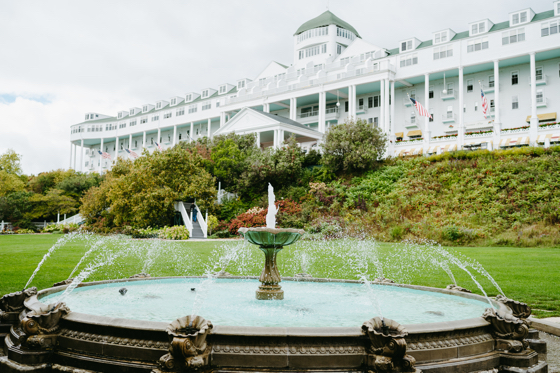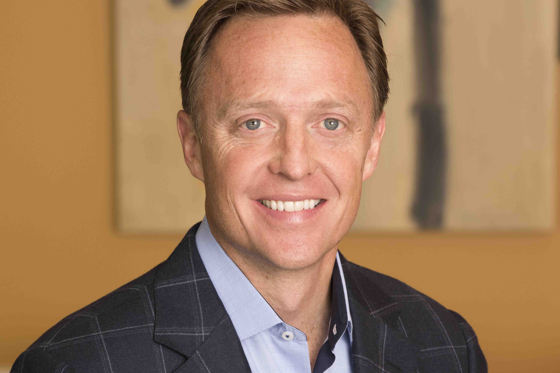Resorts are a breed apart from other hotels, and not just because they appeal to a certain type of guest seeking a different experience. With spas, golf courses, multiple food and beverage outlets, sometimes fractional owners and often complex grounds, resorts often require a specialized management team to thrive.
Davidson Hotels recently told HOTELS in an exclusive interview that it sees resorts as a robust enough niche that the company decided to launch a separate division, Davidson Resorts, seeded by eight properties it already operates and two in the pipeline.
Thom Geshay, Davidson’s president, said the new division will improve the company’s visibility in a sea of homogenized, commoditized competitors. “We’ve always focused on full-service,” he said, “and this is a way of furthering that.”

The stakes are high: At larger properties, ancillary (non-room) revenues equal income from rooms. “Everybody refers to RevPAR; with larger resorts, it’s TRevPAR, or total RevPAR,” Geshay said. And owners of those resorts “are becoming very sophisticated in the way they track business streams and revenues,” he added.
Geshay projects revenues for the 10 resorts will stabilize in the US$450 million to US$500 million range by 2022. The game plan is to build upon that base — which includes the likes of Grand Hotel on Michigan’s Mackinac Island and The Don CeSar in St. Petersburg, Florida — with additional assets in the upper upscale and luxury tiers. Davidson aims to double revenue from the division over the next two to three years, with an eye toward domestic candidates first and eventual expansion beyond, most likely in Caribbean destinations.
To stress the spotlight on this niche, Davidson Resorts appointed Steve Contos executive vice president; Contos most recently served as a senior vice president at Marriott International, overseeing Caribbean and luxury hotels in Latin America. During his tenure, he was responsible for 78 hotels and resorts across 12 brands.
The company followed a similar game plan with Pivot Hotels & Resorts, the lifestyle division it launched in 2016.
“We though the way to be better, unique or different was to hire people who were deeply ensconced in that space,” said Davidson CEO John Belden. “With Pivot, we could have taken our people who run branded hotels and said, ‘You figure out how to run this,’ but instead we found people who understood the lifestyle space.”
Pivot has blossomed from a single independent hotel to nearly 30, with an active pipeline. More than 20 staffers are dedicated to those hotels, which also benefit from centralized services. While the resorts division won’t expand as quickly, Belden added, “We are utilizing the same blueprint for Resorts.”

Belden said the barriers to entry for resort management are high, given the kinds of expertise it demands. “You need to have very deep F&B talent, as well as talent that spans the various amenities — golf, spa, membership, ski, etc. There are a lot of variables that just make it daunting for people to enter.”
Davidson already has some essentials of resort operations covered. It knows F&B: Its managed restaurants take in about US$350 million, with some single locations posting up to US$10 million a year. Several of its resorts operate aquatic amenities, extensive retail and other significant non-room sources of revenue. “We also understand the group piece — how to sell and drive group business,” Geshay said.
The COVID era has further underscored the importance of astute resort management. Resorts have been seen as a safe haven for leisure travelers, a lower risk way to escape. But with mandates affecting social distancing in public areas, food and beverage capacity and other rules, providing guests with the service and experience they expect has been more challenging than usual.
That makes managing guests — not just during their stay but before and after – especially crucial, Belden observed. “Because of the complexity and sophistication of the resort experience, and because there are so many things to do, we want to make sure guests are well versed on that and what’s important to them… helping them make spa and dinner reservations, for instance.” And properties can extend the resort experience by sending guests home with signature merchandise, a fitness routine or a favorite recipe.
Geshay said COVID-19 has also improved the prospects for expanding the division. He argued that pandemic-related cutbacks by third-party operators and public companies have reduced the support owners typically expect. “There’s been a lot of shuffling of deck chairs, and a lot of companies have downsized their staffs. Brands have downsized and property-level staffs are down, and that will be continue,” he added.
Davidson, on the other hand, deliberately kept its team largely intact. “We felt like owners needed us more than ever this year,” Geshay said.
And as leisure bookings continue to dominate, the resort segment is well-positioned to thrive relative to other asset types. That trend will open up opportunities for Davidson Resorts. “We think now is a great time for this,” Geshay says.
